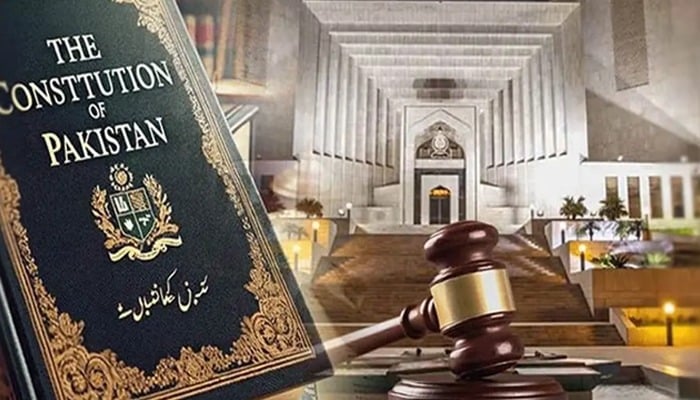27th Amendment: The Supreme Court’s Breaking Point?

In his letter, Justice Minallah expressed dismay over the erosion of fundamental rights and the judiciary’s internal compromises.
A growing storm has engulfed Pakistan’s judicial and political landscape as Supreme Court Justice Athar Minallah and 38 former law clerks of the apex court warned that the proposed 27th Constitutional Amendment poses an unprecedented threat to judicial independence, describing it as potentially “ The Supreme Court’s Breaking Point.”
In a seven-page letter addressed to Chief Justice of Pakistan Yahya Afridi, Justice Minallah expressed deep alarm over what he termed the systematic erosion of fundamental rights and internal compromises within the judiciary.
The letter, he said, was written as a solemn duty to the Constitution and as a record “for future generations of how their destiny was being shaped within the walls of the highest court.”
“I had taken an oath to defend, protect and preserve the Constitution but find myself helpless because the fundamental rights covenanted to the people have too often been reduced to mere cliché or rhetoric,” Justice Minallah wrote. He lamented that judicial independence has “too often been compromised from within through surrender or active participation.”
Justice Minallah warned that while institutions take time to build, they can be quickly destroyed through “fear, surrender, or submission to authority.” He added that Pakistan’s judiciary, though imperfect in its history, must not allow its control to fall into the hands of unelected elites.
He also disclosed that a former chief justice, during deliberations on the reserved seats case, had warned 12 judges that he had “stalled the imposition of martial law” and cautioned that “they would come and send us home.”
The letter comes amid the government’s push to pass the 27th Constitutional Amendment already approved by the Senate which proposes sweeping changes to Pakistan’s judicial and administrative framework.
Among the most contentious clauses are provisions creating Federal Constitutional Courts in Islamabad and the provinces, reintroducing executive magistrates, and empowering the executive branch to oversee judicial transfers measures critics say would severely undermine the judiciary’s autonomy.
The amendment also seeks to overhaul Article 243 of the Constitution by abolishing the post of Chairman of the Joint Chiefs of Staff Committee, creating a new office of Chief of Defence Forces, and granting lifetime tenure and immunity to military chiefs — a move viewed as centralizing military power further.
In a separate letter, 38 former Supreme Court law clerks, including prominent lawyers Mirza Moiz Baig, Umer Gilani, Hareem Godil, and Alizeh Akbar Meer, echoed Justice Minallah’s concerns.
They urged Chief Justice Afridi to immediately convene a Full Court meeting to formulate an institutional response against what they termed “the greatest threat to judicial independence since 2007.”
“As former law clerks of the Supreme Court, we believe that the independence of the judiciary currently faces a threat far graver than the one it faced in 2007. The greatest threat to an independent judiciary is judges willing to capitulate their independence,” the letter stated.
The signatories reminded the CJP of landmark Supreme Court rulings — Sindh High Court Bar Association vs Federation of Pakistan (PLD 2009 SC 879) and District Bar Association Rawalpindi vs Federation of Pakistan (PLD 2015 SC 401) — which reaffirmed the judiciary’s constitutional duty to preserve the separation of powers and safeguard its independence.
In another strongly worded statement released yesterday, a group of senior lawyers and retired judges condemned the 27th Amendment as a “political device to weaken and control the judiciary” and “the most radical restructuring of the Supreme Court since the Government of India Act, 1935.”
They argued that the amendment “seeks to subjugate the judiciary under the garb of reform” and called on the Chief Justice to uphold the court’s legacy as a “bulwark against executive and legislative excesses.”
Appealing directly to CJP Afridi’s legacy and his role in the 2007–09 lawyers’ movement, the former clerks concluded:
“You are in the unique position of immortalising your name in the annals of judicial history. Your actions today will dictate whether you will be known as the Chief Justice who stood as a bulwark against the Supreme Court’s destruction or as one who buried the Supreme Court.”
The letter ends with a chilling warning: “We stand on the edge of the precipice. It’s now or never.”
Read More News On
Catch all the Business News, Breaking News Event and Latest News Updates on The BOL News
Download The BOL News App to get the Daily News Update & Live News.